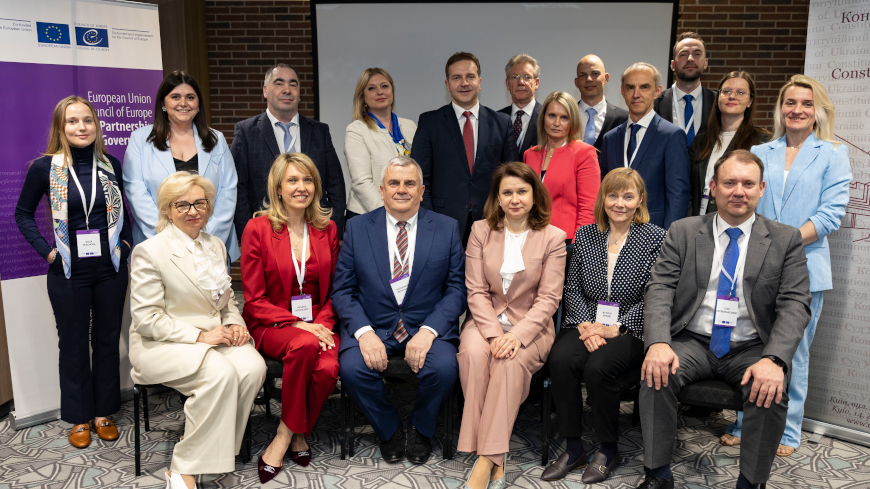A two-day round-table discussion to exchange on experiences and best practices on the right to file a constitutional individual complain was held on 9 and10 May, with the participation of the Constitutional Courts of Ukraine and the Republic of Latvia.
The aim is to contribute to the development of efficient procedures and the increase in quality of legal interpretation with due regard to the applicable standards, including those based on the European Convention on Human Rights and the Charter of Fundamental Rights of the European Union. In the framework of this, the Constitutional Court of Ukraine conducts exchange activities on constitutional court in an EU member state.
“Constitutional complaint is an instrument to bring justice closer to the society or to a particular person”, underlined the President of the Constitutional Court of the Republic of Latvia Aldis Laviņš.
The round-table exchanges covered the following topics:
- Comparative analysis of the functioning of the Constitutional Court of Ukraine and the Constitutional Court of the Republic of Latvia;
- The right to a constitutional individual complaint: content and forms, sharing good practices, discussing challenges; and
- Developing recommendations for the Constitutional Court of Ukraine on constitutional individual complaints in the light of Ukraine's path towards EU integration.
In conclusion to the round table, the courts agreed on concrete steps of the further cooperation between the Constitutional Court of Ukraine and the Constitutional Court of the Republic of Latvia.
This event is part of the European Union and Council of Europe joint programme “Partnership for Good Governance”, co-funded by the European Union and the Council of Europe, and implemented by the Council of Europe, in the framework of the project “Support to development of the constitutional justice in Ukraine”.





